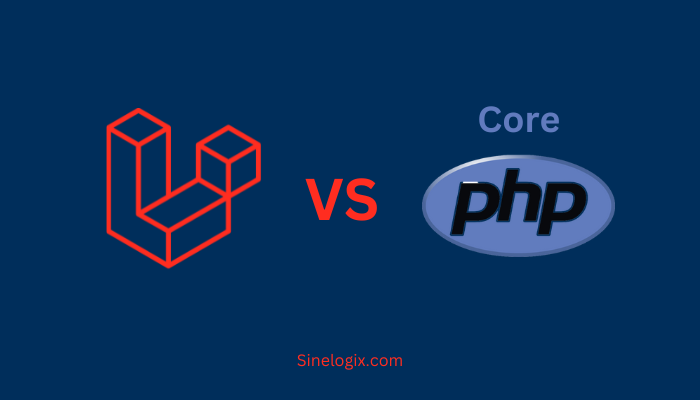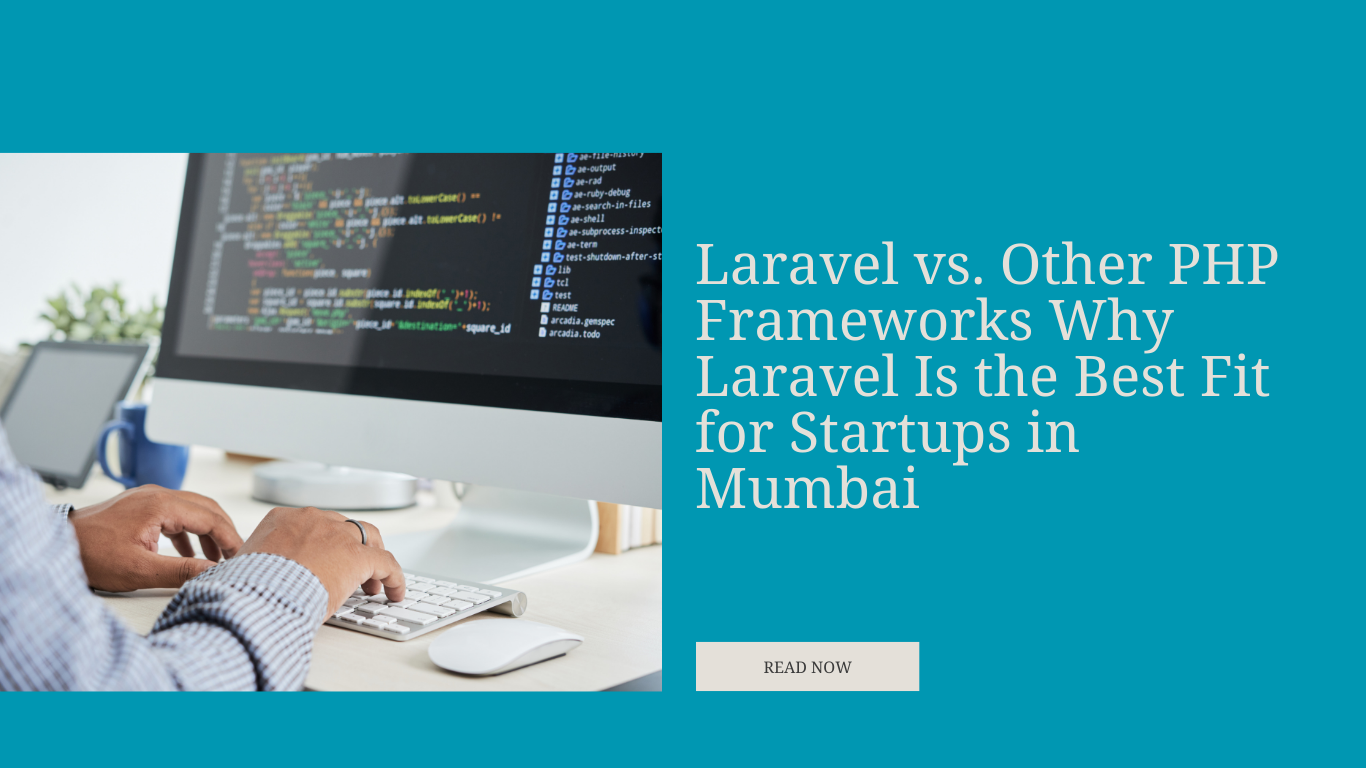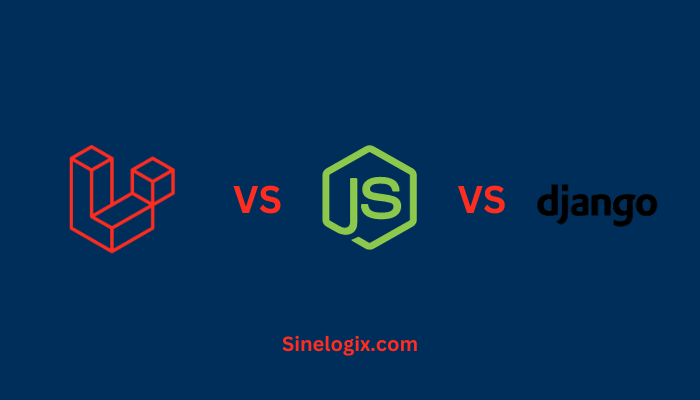In the landscape of web development, the choice between a full-fledged framework like Laravel and the core PHP language can significantly impact a project’s development and success.
This comprehensive analysis aims to dissect the nuances of Laravel and Core PHP, shedding light on their distinctive features and paradigms. By examining these two options, developers can make informed choices aligned with their project requirements.
Features
Laravel and Core PHP represent different approaches to web development, each offering a unique set of features and methodologies.
Laravel, a PHP framework, is celebrated for its elegant syntax and developer-friendly experience. It offers an expressive ORM (Object-Relational Mapping) known as Eloquent, a powerful templating engine named Blade, and a convenient query builder. Laravel follows the convention over configuration principle, emphasizing simplicity and rapid application development.
Core PHP, on the other hand, represents the raw PHP language without the structure and conventions of a framework. It provides complete flexibility, allowing developers to build applications from scratch, defining their architecture, and integrating features as required.
Market Usage Statistics
Analyzing the market usage statistics of Laravel and Core PHP provides insights into their real-world adoption. Laravel, as a PHP framework, has gained widespread popularity, particularly in the startup and mid-sized project space. Its vibrant community and rich ecosystem of packages available through Composer contribute to its success.
Core PHP, while not a framework, serves as the backbone of many web applications. Its flexibility and widespread use allow developers to craft solutions tailored to their specific needs without adhering to the conventions imposed by a framework.
Popularity Over the Years
Exploring the historical popularity of Laravel and Core PHP unveils insights into their evolution and sustained relevance. Laravel has experienced significant growth, becoming one of the most sought-after PHP frameworks. Its commitment to modern development practices and a focus on developer experience contribute to its widespread adoption.
Core PHP, being the base language, has been a constant in web development. Its versatility and fundamental role in web applications make it a prevalent choice, particularly among developers seeking complete control over their project architecture.
Pros and Cons of Laravel and Core PHP
To make informed decisions, developers must evaluate the strengths and weaknesses of each approach.
Laravel’s Pros:
- Elegant syntax and developer-friendly features.
- Large and active community with extensive documentation.
- Rich ecosystem of packages available through Composer.
- Convention over configuration for streamlined development.
Laravel’s Cons:
- Overhead of a framework that might not be necessary for all projects.
- Potentially steeper learning curve for beginners.
Core PHP’s Pros:
- Complete flexibility to build applications tailored to specific requirements.
- No reliance on a specific framework’s conventions.
- Lightweight, ideal for small and straightforward projects.
Core PHP’s Cons:
- Lack of structure and conventions that could result in inconsistent code.
- Developers need to handle security, database interaction, and other functionalities manually.
Applications
Understanding the applications of Laravel and Core PHP is crucial for choosing the right approach for a given project.
Laravel Applications:
- Content management systems (CMS).
- E-commerce platforms.
- Small to medium-sized web applications.
- Projects where rapid development with a structured approach is crucial.
Core PHP Applications:
- Small-scale projects with specific, custom requirements.
- Projects where complete control over the architecture is desired.
- Applications where the overhead of a framework is unnecessary.
Laravel Vs Core PHP: A Detailed Comparison
Similarities and Differences
While Laravel and Core PHP are both based on PHP, they differ significantly in their design philosophies and approaches.
Similarities:
- Both leverage the PHP language for web development.
- Offer solutions for building web applications.
Differences:
- Laravel provides a structured framework with conventions for rapid development.
- Core PHP offers complete flexibility, allowing developers to build applications from scratch.
Laravel Vs Core PHP: Which Should You Choose?
The decision between Laravel and Core PHP hinges on a thorough evaluation of project needs and team expertise.
Consider Laravel if:
- You need a structured approach and quick development.
- Your project fits within the framework’s conventions.
- A strong community and extensive resources are essential.
Consider Core PHP if:
- Complete control over the architecture is crucial.
- Your project is small-scale and straightforward.
- You prefer avoiding the overhead of a framework.
Alternatives of Laravel and Core PHP
While Laravel and Core PHP offer contrasting approaches, exploring alternatives can provide developers with additional options tailored to specific project needs.
Symfony (PHP):
- A PHP framework suitable for large-scale projects with a modular and flexible architecture.
- Ideal for developers comfortable with a configuration-centric approach.
Express.js (Node.js):
- Minimalist web application framework for Node.js.
- Ideal for building APIs and single-page applications.
Related Articles:
Conclusion
In conclusion, the choice between Laravel and Core PHP depends on project specifics, team expertise, and the desired level of structure and conventions. Laravel excels in providing a structured environment for rapid application development, suitable for a wide range of projects.
Core PHP, offering complete flexibility, is ideal for projects where complete control over the architecture is necessary, especially for smaller and straightforward applications.




